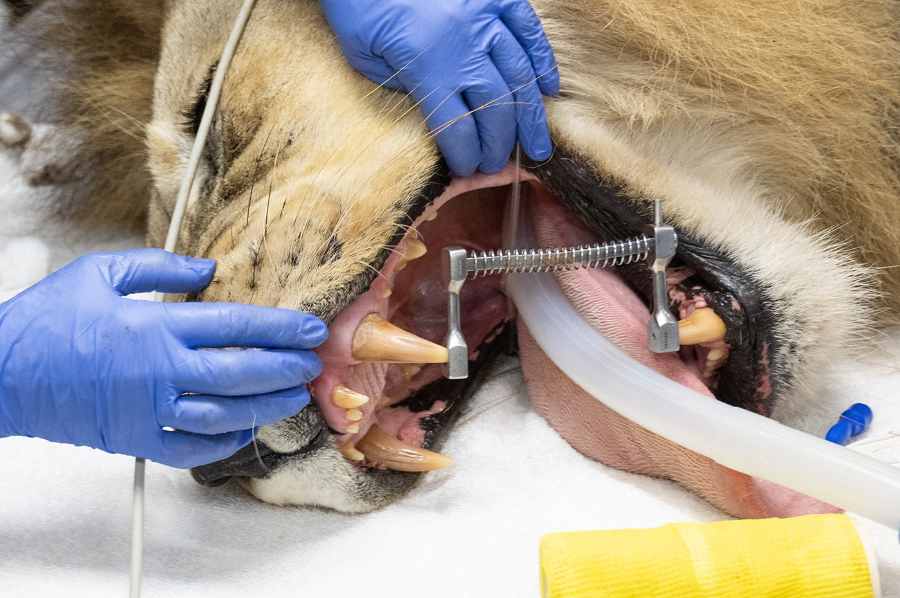The death of a lion is never just the passing of an animal. For zoos, conservationists, and communities, it represents the loss of a symbol of strength, history, and a crucial part of wildlife preservation. Zoo Miami recently announced the death of its last remaining lion, Kwame, just weeks after his brother had also passed away. The tragedy has raised pressing concerns about the future of the zoo’s pride, the state of lion conservation in captivity, and what it means for future generations of visitors who see lions as one of the most iconic attractions. The story of Kwame’s life and sudden death is more than just a zoo headline—it is a reflection of broader challenges facing conservation efforts worldwide.
- Kwame: The Life of a Miami Icon
- The Circumstances of Kwame’s Death
- The Future of the Lion Pride at Zoo Miami
- Why Lions Matter in Zoos
- Public Reaction and Emotional Impact
- The Broader Conservation Context
- What Comes Next for Zoo Miami
- Expert Perspectives
- Frequently Asked Questions
- Why did Kwame, Zoo Miami’s last lion, die?
- What happened to Kwame’s brother?
- Will Zoo Miami bring in new lions?
- Why are lions important in zoos?
- How many lions are left in the wild?
- What does Kwame’s death mean for conservation?
- Conclusion
Kwame: The Life of a Miami Icon
Kwame was more than just another lion at Zoo Miami; he was a centerpiece of the zoo’s identity. Born in captivity, Kwame was part of a breeding program that aimed to ensure genetic diversity among African lions, whose population has been under threat in the wild for decades. Lions are considered one of the “big five” species most commonly associated with African wildlife, and their presence in zoos is not only about display but also about education and conservation.
For years, Kwame and his brother stood as ambassadors of their species, teaching millions of visitors—especially children—about the role lions play in ecosystems. Their roars echoed across the zoo grounds, creating moments of awe for families and visitors from around the world. According to zoo staff, Kwame had a majestic personality, known for his calm demeanor and imposing presence. His sudden death leaves behind both emotional and scientific questions about the survival of lions at Zoo Miami.
The Circumstances of Kwame’s Death
While the zoo has not fully disclosed every medical detail, initial reports indicate that Kwame’s death followed a period of declining health, similar to what had been observed in his brother before he passed away. Lions in captivity often face age-related health issues, including kidney failure, heart disease, and joint problems, as they tend to live longer than their wild counterparts. Wild lions typically live between 10 to 14 years, while those in managed care can live up to 20 years.
Zoo veterinarians noted that Kwame was receiving routine care and close observation in his final weeks. Despite best efforts, his condition deteriorated rapidly, and he died just weeks after his brother. For the zoo, this represents not only the loss of two individuals but the collapse of their entire lion pride—a devastating blow for both the institution and the community.
The Future of the Lion Pride at Zoo Miami
With Kwame’s passing, Zoo Miami currently has no lions left on exhibit. This absence is unusual for a major metropolitan zoo, as lions are often seen as cornerstone animals, drawing large numbers of visitors. The question now arises: Will Zoo Miami bring in new lions, or will it shift its focus toward other endangered species?
Zoo officials have stated that they are reviewing their options in consultation with conservation partners and international breeding programs. The possibility of introducing new lions depends on various factors, including available space, funding, and the suitability of potential candidates from other zoos. Introducing a new pride is not as simple as transporting animals—it requires genetic planning, veterinary assessments, and a commitment to long-term care.
The loss of Kwame and his brother also comes at a time when zoos across the United States are reevaluating their role in conservation. Many are shifting focus from simply displaying animals to actively participating in breeding programs, habitat preservation, and global awareness campaigns.
Why Lions Matter in Zoos
Lions are not just tourist attractions; they play a vital role in education and conservation. According to the International Union for Conservation of Nature (IUCN), African lion populations have declined by nearly 50 percent in the past three decades, primarily due to habitat loss, poaching, and human-wildlife conflict. Fewer than 20,000 remain in the wild today.
Zoos like Zoo Miami have long participated in the Species Survival Plan (SSP), a collaborative program designed to maintain genetically diverse and healthy captive populations. Kwame and his brother were part of this global effort, which has successfully sustained populations of several other threatened species, including cheetahs, giraffes, and elephants. By losing its lions, Zoo Miami is left without one of the most powerful educational tools for connecting visitors to conservation issues in Africa.
Public Reaction and Emotional Impact
The news of Kwame’s death spread quickly, and the reaction from the public was filled with sadness and reflection. Longtime visitors shared memories of seeing Kwame with their children, while animal advocates expressed concern about the broader implications for lion conservation. Social media was flooded with photos and videos of Kwame, many describing him as a “gentle king” and an unforgettable part of Zoo Miami’s history.
For many families, lions are often the first animal children want to see at the zoo. Their absence leaves an emotional gap that is hard to replace. This highlights the deep bond between humans and lions, one that has been nurtured through centuries of cultural symbolism, literature, and shared experience.
The Broader Conservation Context
The death of Kwame is not just a local loss; it reflects broader issues in lion conservation worldwide. Wild lion populations face severe threats due to shrinking habitats and illegal hunting. Trophy hunting remains controversial, and the spread of human settlements into lion ranges has increased conflict. In many African countries, conservation groups are struggling to maintain protected reserves where lions can thrive.
In captivity, lions face a different set of challenges. While they are protected from poaching and hunger, they often suffer from health issues related to age, limited genetic pools, and the stress of confinement. Zoos must balance the educational benefits of keeping lions with the ethical considerations of animal welfare.
Experts suggest that Kwame’s death should serve as a reminder of the fragility of even captive populations. It underscores the importance of global collaboration among zoos, wildlife reserves, and conservation groups to ensure that lions do not vanish from either captivity or the wild.
What Comes Next for Zoo Miami
The zoo is now at a crossroads. Without lions, it may choose to focus on other large carnivores, such as tigers or jaguars, which are also endangered and part of global breeding programs. Alternatively, it could work toward re-establishing a lion pride by collaborating with other accredited zoos through the Association of Zoos and Aquariums (AZA).
Zoo Miami officials have not ruled out bringing lions back in the future. However, decisions will depend on logistics, funding, and alignment with broader conservation goals. For now, visitors will have to accept the absence of the “king of beasts” at one of Florida’s most renowned zoos.
Expert Perspectives
Wildlife biologists stress the significance of Kwame’s passing. Dr. Mark Walters, a conservation specialist, explains: “Every lion in captivity represents a valuable genetic resource for the global population. Losing an entire pride at a major zoo means a setback not just for that institution, but for the wider conservation community.”
Other experts highlight the role of zoos in shaping public attitudes. Dr. Emily Rodriguez, a zoologist specializing in carnivores, notes: “Children who see lions up close are more likely to grow into adults who care about protecting wildlife. Without that personal connection, conservation becomes an abstract idea rather than a lived experience.”
These expert voices reinforce the idea that Kwame’s story is not just about one zoo but about humanity’s ongoing relationship with the natural world.
Frequently Asked Questions
Why did Kwame, Zoo Miami’s last lion, die?
Kwame’s exact cause of death has not been fully disclosed, but he had been under veterinary care for age-related health problems. Like many lions in captivity, he faced medical complications as he grew older, which ultimately led to his passing.
What happened to Kwame’s brother?
Kwame’s brother died just weeks before him, also due to health issues. The loss of both lions in such a short period has left Zoo Miami without any members of its pride.
Will Zoo Miami bring in new lions?
Zoo Miami officials are considering their options. Bringing in new lions requires careful planning, coordination with global breeding programs, and ensuring the zoo has the resources and facilities to properly care for them.
Why are lions important in zoos?
Lions are a key species for education and conservation awareness. They help zoos raise public understanding about the threats lions face in the wild and serve as ambassadors for global conservation efforts.
How many lions are left in the wild?
According to the IUCN, fewer than 20,000 African lions remain in the wild. Their numbers continue to decline due to habitat loss, poaching, and human-wildlife conflict.
What does Kwame’s death mean for conservation?
Kwame’s death is a reminder of the challenges facing lion populations in both captivity and the wild. It highlights the need for stronger global collaboration in breeding programs, habitat protection, and public education.
Conclusion
Kwame’s death marks the end of an era for Zoo Miami. With no lions left in its exhibits, the zoo faces an uncertain future regarding its lion program and must decide whether to bring in new pride members or shift its conservation focus elsewhere. Beyond the zoo’s walls, his passing reflects the fragility of lion populations everywhere, both in captivity and in the wild.
The story of Kwame and his brother is one of pride, loss, and responsibility. It underscores how deeply humans are connected to lions, not only as symbols of majesty but as living creatures whose survival depends on our actions. As Zoo Miami looks ahead, Kwame’s legacy will continue to roar in the hearts of those who saw him, reminding us that the future of lions—whether in zoos or savannas—remains in question and firmly in our hands.








